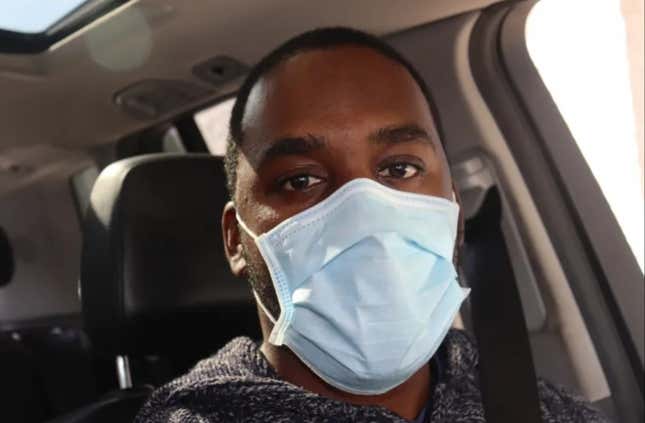
Listen—black people didn’t need a global pandemic to make us hyper-aware of our appearance and how we have to work a little harder to avoid being “suspicious-looking.” Hoodies, baggy pants and dark clothing are just a few things that have increased the likelihood of us being racially profiled. Now, statewide requirements to wear face coverings during the coronavirus pandemic have given us one more thing to worry about. As a result, Democratic lawmakers are asking that police be extra vigilant in checking any impulses they may have to target black people for unreasonable suspicion.
According to the Associated Press (via HuffPost), Sen. Kamala Harris and other Democratic members of the Senate Judiciary Committee sent a letter to Attorney General William Barr and FBI Director Christopher Wray on Friday requesting that federal law enforcement agencies provide anti-bias training and guidance to police officers.
“With the ongoing public health emergency, it is more important than ever for law enforcement to build trust with communities of color,” the letter reads. “If communities of color — especially African American communities — feel at risk of disproportionate or selective enforcement, they may avoid seeking help or adopting precautionary measures recommended by the CDC. This, in turn, could have dire public health consequences.”
This is far from an unfounded concern. Less than a week after the CDC issued recommendations that certain states require people to wear face masks when riding public transportation or visiting grocery stores, two black men recorded themselves being followed around by police and being run out of a Walmart.
Shortly after that, a video was posted to social media showing a black man being forcibly dragged off of a bus for not having his face covered. Many people speculated that he may have simply been trying to avoid being profiled. Harris said in a letter to the Associated Press that these incidents suggest mask requirements “could expose Black Americans to unfair and dangerous treatment from law enforcement.
“We need to place more responsibility on the system, particularly in this moment,” she wrote. “During this crisis, it is more important than ever for law enforcement to prioritize building relationships of trust with the communities they serve.”
Of course, executive director of the National Fraternal Order of Police Jim Pasco responded to the request the way white people typically respond to any and all citings of racism: He suggested the incidents were isolated and got offended by the very idea that officers are sometimes racist.
“In the circumstances we currently find ourselves in, I find it troubling that anyone is asking the nation’s already overworked officers to take time out of their work for training, based on a few allegations of improper conduct,” Pasco said in a phone interview. “This seems like political opportunism, at the least opportunistic time for the country.”
It’s always leftist “opportunism” and “politics” whenever anyone with a large platform talks about racism, but for black people who live in a world where we have to be extra vigilant about not looking “wrong,” racism and implicit bias aren’t political issues, they’re our lived experiences.

